Ford Focus vs Nissan Juke - Differences and prices compared
Compare performance (280 HP vs 143 HP), boot space and price (27500 £ vs 21400 £ ) at a glance. Find out which car is the better choice for you – Ford Focus or Nissan Juke?
Costs and Efficiency:
Price and efficiency are often the first things buyers look at. Here it becomes clear which model has the long-term edge – whether at the pump, the plug, or in purchase price.
Nissan Juke has a distinct advantage in terms of price – it starts at 21400 £ , while the Ford Focus costs 27500 £ . That’s a price difference of around 6129 £.
Fuel consumption also shows a difference: Nissan Juke manages with 4.70 L and is therefore slight more efficient than the Ford Focus with 4.90 L. The difference is about 0.20 L per 100 km.
Engine and Performance:
Under the bonnet, it becomes clear which model is tuned for sportiness and which one takes the lead when you hit the accelerator.
When it comes to engine power, the Ford Focus has a significantly edge – offering 280 HP compared to 143 HP. That’s roughly 137 HP more horsepower.
In acceleration from 0 to 100 km/h, the Ford Focus is convincingly quicker – completing the sprint in 5.70 s, while the Nissan Juke takes 10.10 s. That’s about 4.40 s faster.
In terms of top speed, the Ford Focus performs evident better – reaching 250 km/h, while the Nissan Juke tops out at 180 km/h. The difference is around 70 km/h.
There’s also a difference in torque: Ford Focus pulls decisively stronger with 420 Nm compared to 200 Nm. That’s about 220 Nm difference.
Space and Everyday Use:
Whether family car or daily driver – which one offers more room, flexibility and comfort?
Both vehicles offer seating for 5 people.
In curb weight, Nissan Juke is minimal lighter – 1274 kg compared to 1330 kg. The difference is around 56 kg.
In terms of boot space, the Nissan Juke offers minimal more room – 422 L compared to 392 L. That’s a difference of about 30 L.
In maximum load capacity, the Ford Focus performs slight better – up to 1354 L, which is about 49 L more than the Nissan Juke.
When it comes to payload, Ford Focus distinct takes the win – 560 kg compared to 427 kg. That’s a difference of about 133 kg.
Who wins the race in the data check?
The Ford Focus is clearly superior overall in the objective data comparison.
This result only shows which model scores more points on paper – not which of the two cars feels right for you.
Costs and Consumption
View detailed analysis
Engine and Performance
View detailed analysis
Dimensions and Body
View detailed analysis
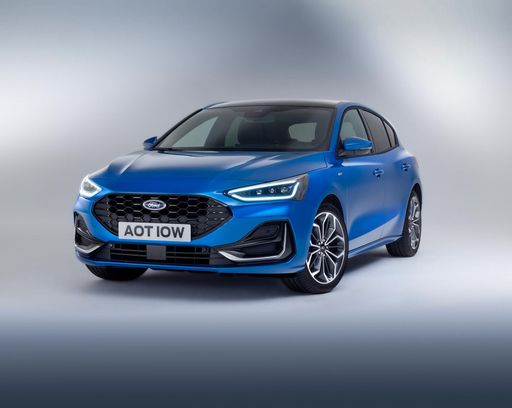
Ford Focus
Ford Focus
The Ford Focus remains a clever all‑rounder that balances sharp handling with everyday comfort, making it a strong choice whether your commute is city streets or country lanes. Its practical cabin and sensible running costs mean you’ll spend more time enjoying the drive and less time worrying about ownership, with a playful streak underfoot that keeps things interesting.
details
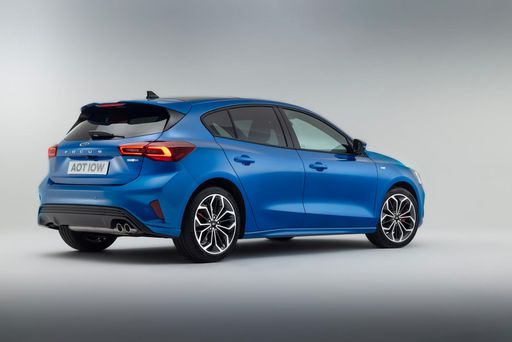
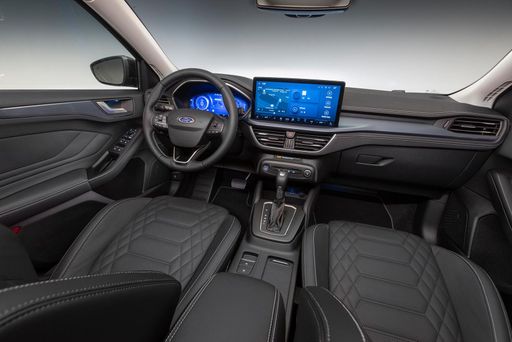
Nissan Juke
The Nissan Juke is a pocket-sized crossover that refuses to blend in, with quirky styling and a cheeky stance that turns heads at every traffic light. It’s ideal for shoppers who value personality and nimble urban driving over maximum practicality, delivering surprising pep and a well-equipped feel for everyday fun.
details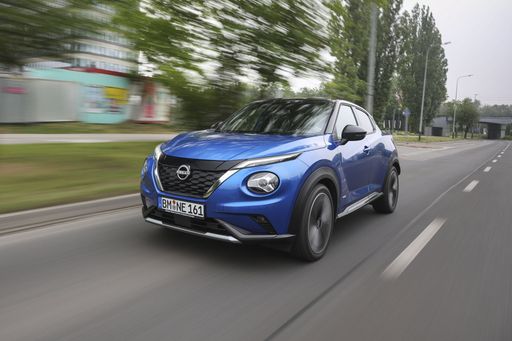
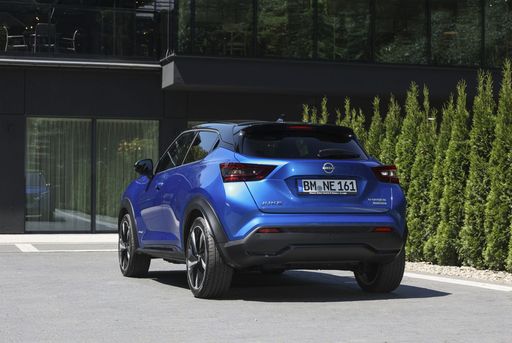
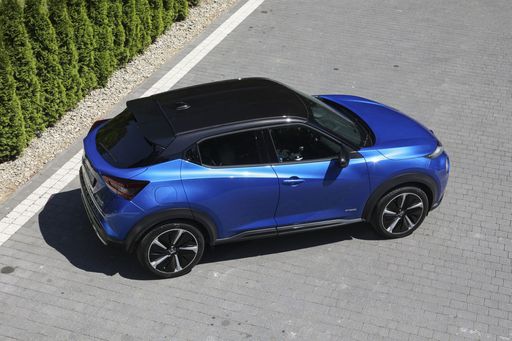

Costs and Consumption |
|
|---|---|
|
Price
27500 - 42700 £
|
Price
21400 - 30100 £
|
|
Consumption L/100km
4.9 - 8 L
|
Consumption L/100km
4.7 - 6 L
|
|
Consumption kWh/100km
-
|
Consumption kWh/100km
-
|
|
Electric Range
-
|
Electric Range
-
|
|
Battery Capacity
-
|
Battery Capacity
0.60 kWh
|
|
co2
117 - 183 g/km
|
co2
107 - 136 g/km
|
|
Fuel tank capacity
52 L
|
Fuel tank capacity
46 L
|
Dimensions and Body |
|
|---|---|
|
Body Type
Hatchback
|
Body Type
SUV
|
|
Seats
5
|
Seats
5
|
|
Doors
5
|
Doors
5
|
|
Curb weight
1330 - 1529 kg
|
Curb weight
1274 - 1405 kg
|
|
Trunk capacity
392 L
|
Trunk capacity
354 - 422 L
|
|
Length
4382 - 4397 mm
|
Length
4210 mm
|
|
Width
1825 - 1844 mm
|
Width
1800 mm
|
|
Height
1438 - 1482 mm
|
Height
1593 mm
|
|
Max trunk capacity
1354 L
|
Max trunk capacity
1237 - 1305 L
|
|
Payload
495 - 560 kg
|
Payload
405 - 427 kg
|
Engine and Performance |
|
|---|---|
|
Engine Type
Petrol MHEV, Diesel, Petrol
|
Engine Type
Petrol, Full Hybrid
|
|
Transmission
Manuel, Automatic
|
Transmission
Manuel, Automatic
|
|
Transmission Detail
Manual Gearbox, Dual-Clutch Automatic, Automatic Gearbox
|
Transmission Detail
Manual Gearbox, Dual-Clutch Automatic, Automatic Gearbox
|
|
Drive Type
Front-Wheel Drive
|
Drive Type
Front-Wheel Drive
|
|
Power HP
115 - 280 HP
|
Power HP
114 - 143 HP
|
|
Acceleration 0-100km/h
5.7 - 11.8 s
|
Acceleration 0-100km/h
10.1 - 11.8 s
|
|
Max Speed
186 - 250 km/h
|
Max Speed
166 - 180 km/h
|
|
Torque
170 - 420 Nm
|
Torque
200 Nm
|
|
Number of Cylinders
3 - 4
|
Number of Cylinders
3 - 4
|
|
Power kW
85 - 206 kW
|
Power kW
84 - 105 kW
|
|
Engine capacity
999 - 2261 cm3
|
Engine capacity
999 - 1598 cm3
|
General |
|
|---|---|
|
Model Year
2022 - 2024
|
Model Year
2024
|
|
CO2 Efficiency Class
D, G
|
CO2 Efficiency Class
D, E, C
|
|
Brand
Ford
|
Brand
Nissan
|
What drive types are available for the Ford Focus?
Available configurations include Front-Wheel Drive.




